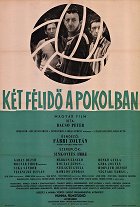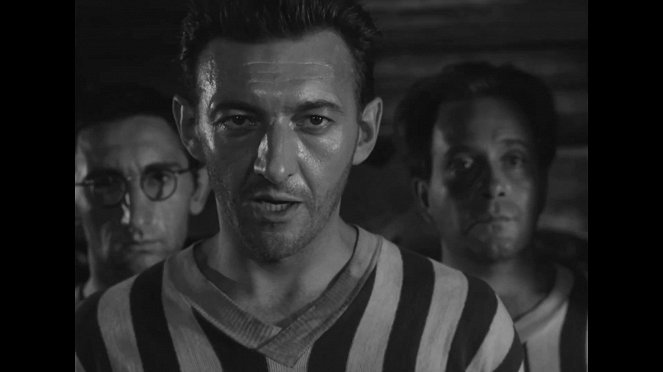Director:
Zoltán FábriCámara:
Ferenc SzécsényiMúsica:
Ferenc FarkasReparto:
Imre Sinkovits, Dezső Garas, József Szendrő, István Velenczey, Gyula Benkő, János Görbe, Tibor Molnár, János Makláry, Laboch Gerald, Siegfried Brachfeld (más)Sinopsis(1)
Somewhere in Ukraine, on the occasion of the birthday of Hitler the football team of forced labour camp workers lines up, in order to match their strength with the selected team of the Germans. The Germans charge Ónodi II, the football star with organising and coaching work. Dió, in whose opinion football is a sacred thing, finds it impossible to set up a team of the physically and mentally weakened people. As however the football players are well fed and not compelled to work in the mines, everybody applys. Dió acquires a special power over his companions. The eleven members team, as they have attempted to escape before, play for their lives and they beat the Germans. They are celebrating happily when the German commander orders fire to the machine guns. (texto oficial de la distribuidora)
(más)Reseñas (1)
As a long-time football player I should be slightly disappointed, because the game itself is given relatively little space and it also takes on more or less cartoonish dimensions. As a filmgoer, on the other hand, I would pat Fábri on the back and buy him a drink. It’s not a film about rebellion against oppressors through a sporting match, such as the diametrically opposed and highly comedic The Longest Yard, it’s a tragic story about hope, false ideas and the nature of humanity in inhumane conditions, where football merely completes the backdrop of hopelessness and the symbolic game played by the "superiors" in the labour camps with political or racial opponents. Among the dozens of similar movies, Two Half-Times in Hell still retains some semblance of originality and technical creativity, although it stumbles a bit in terms of authenticity and the behaviour of the bad guys seems too unbelievable at times; and yet, it remains a very positive contribution to Hungarian anti-war cinema, for me personally almost more appealing and effective than all of Miklós Jancsó's period films put together…
()

